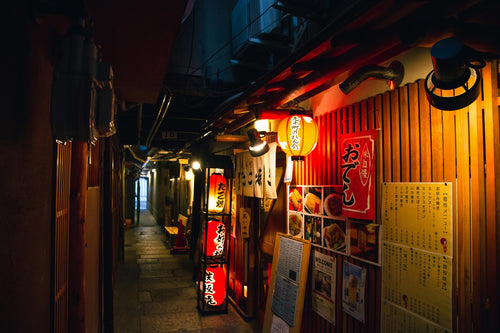
Complete Guide to Japan Travel Passes
Traveling through Japan offers an incredible array of experiences, from bustling cities and ancient temples to scenic rural landscapes. To make exploring this vast country easier and more affordable, Japan provides a variety of travel passes, each catering to different routes, transportation modes, and trip lengths. Whether you’re visiting Tokyo, exploring the historic Kansai region, or journeying across the country by train, this guide will help you choose the best Japan travel passes for your itinerary.
Contents
3. Tokyo Transportation Passes
6. Discounted Air Passes for Domestic Travel
1. Japan Rail (JR) Pass
The Japan Rail (JR) Pass is one of the most popular travel passes for visitors, allowing unlimited travel on most JR-operated trains, including the Shinkansen (bullet train), local trains, and some buses and ferries. The JR Pass is available in 7-day, 14-day, and 21-day options, making it ideal for those who plan to cover multiple cities or regions. With this pass, travelers can easily explore major destinations such as Tokyo, Kyoto, Osaka, Hiroshima, and more.
The JR Pass must be purchased before arriving in Japan and can only be used by foreign tourists with short-term visas. To use the pass, present it at JR ticket gates instead of inserting it into the automatic turnstiles. Note that the JR Pass does not cover certain high-speed Shinkansen types, such as the Nozomi and Mizuho services.
Highlights: Unlimited JR train access, including Shinkansen (except Nozomi/Mizuho); ideal for cross-country travel.
2. Regional Rail Passes
If your itinerary focuses on a specific area, regional passes are a cost-effective alternative to the nationwide JR Pass. Examples include the JR East Pass for eastern Japan, the JR Kansai Area Pass for the Kyoto-Osaka region, and the JR Kyushu Pass. Each regional pass offers unlimited travel within a particular zone, with flexibility in duration (usually from 1 to 5 days).
Regional passes are more affordable than the JR Pass and offer tailored travel options within specific areas. For example, the JR West Kansai Wide Area Pass includes coverage for popular cities like Osaka, Kyoto, Nara, and Kobe, as well as Shinkansen access to certain regions.
Highlights: Cost-effective for regional travel; options vary in length and coverage to suit different plans.
3. Tokyo Transportation Passes
Tokyo offers a variety of transportation passes to help visitors navigate its extensive public transit system. The Tokyo Metro 24-Hour, 48-Hour, and 72-Hour Tickets allow unlimited rides on Tokyo Metro and Toei Subway lines, perfect for exploring inner-city attractions. These passes are exclusively available to foreign tourists and can be purchased at airports, major subway stations, and some hotels.
For those planning day trips, consider the Tokyo Wide Pass, which includes unlimited rides on JR East lines around the Tokyo area, including access to spots like Mount Fuji, Nikko, and Izu.
Highlights: Unlimited subway access within Tokyo, with day-trip options available; great for Tokyo sightseeing and nearby attractions.
4. Osaka and Kansai Passes
Osaka and the surrounding Kansai region offer several travel passes, making it easy to explore popular cities like Kyoto, Nara, and Kobe. The Kansai Thru Pass provides unlimited rides on private railways, subways, and buses across the region (excluding JR lines) and comes in 2- and 3-day options. This pass is particularly useful for visiting temples, historic sites, and scenic spots throughout the Kansai area.
For Osaka-only travel, the Osaka Amazing Pass provides unlimited rides on Osaka Metro and city buses, along with free entry to over 40 popular attractions, including the Umeda Sky Building and Osaka Castle. The pass is available for 1 or 2 days, offering excellent value for those focusing on city exploration.
Highlights: Kansai-wide travel and Osaka city passes, including entry to major attractions; ideal for regional sightseeing.
5. Bus and Highway Passes
For budget-conscious travelers, Japan’s highway buses offer an economical way to travel between cities. The Japan Bus Pass from Willer Express provides flexible, unlimited rides on selected routes across the country, with options for 3, 5, or 7 days of travel. It’s a popular choice for longer trips or for those looking to visit multiple cities on a budget.
Within cities, day passes for local buses can make getting around easy and affordable. Kyoto offers a convenient 1-Day Bus Pass that covers unlimited rides on city buses, ideal for visiting temples and shrines. Other cities like Hiroshima and Sapporo also offer day passes for easy urban exploration.
Highlights: Budget-friendly intercity and local bus options; flexibility in multi-city and local travel.
6. Discounted Air Passes for Domestic Travel
For travelers looking to cover long distances quickly, domestic flights can be a viable option. Japan’s major airlines, including ANA and JAL, offer discounted air passes for foreign visitors. These passes, such as the ANA Experience Japan Fare and the JAL Japan Explorer Pass, provide substantial discounts on one-way flights within Japan, making them ideal for reaching distant regions like Hokkaido, Okinawa, or Kyushu.
Most discounted air passes require a valid international return ticket to Japan and can be booked online before arrival. These air passes offer convenience and can save time, particularly for those with a packed itinerary who want to maximize their sightseeing across multiple regions.
Highlights: Affordable domestic flight options; suitable for covering large distances or reaching remote areas quickly.
7. Tips for Using Travel Passes Effectively
Plan Your Itinerary: Determine which cities or regions you’ll visit, then choose a pass that aligns with your travel plans. For example, if you’re only visiting Tokyo and Osaka, a regional or city pass might be more economical than the nationwide JR Pass.
Combine Passes Wisely: In some cases, combining multiple passes can maximize savings. For instance, you might use a JR Pass for long-distance travel, then a Tokyo Metro pass for inner-city exploration.
Consider Your Travel Pace: Some passes, like the JR Pass, offer greater value for travelers moving frequently between cities. If you plan to stay in one place, a regional pass or city pass may offer better value.
8. Conclusion: Choosing the Right Pass for You
Japan offers a wide variety of travel passes to suit different needs, from cross-country adventures to city-specific sightseeing. Whether you’re visiting for a week or a month, traveling solo or with family, there’s a pass that can save you time and money. By assessing your itinerary, choosing the most compatible travel pass, and making use of insider tips, you’ll ensure a smooth, efficient, and memorable journey across Japan’s many stunning destinations. Safe travels!
Share
You may also like
-

How to Enjoy a Night at a Japanese Izakaya
Japanese izakayas are casual, lively spots where locals gather after work to enjoy drinks, share small plates, a...
-

7 Best Places to Discover Japan’s Samurai History
Japan’s samurai history is one of honor, skill, and deep cultural influence, stretching back centuries and leaving an...
-

Japan’s Three Great Onsen: A Guide to Famous Hot Springs
Japan is famous for its natural hot springs, or *onsen* (温泉), offering visitors a unique opportunity to relax and rej...
-

What is Sake? Its Production Method and History
Sake is a traditional Japanese alcoholic beverage made from fermented rice. It has been enjoyed in Japan for over a t...




